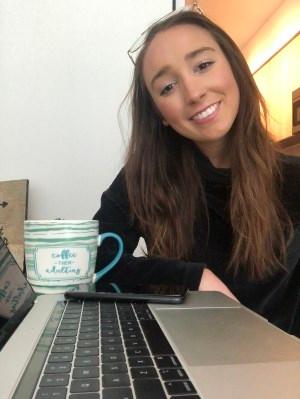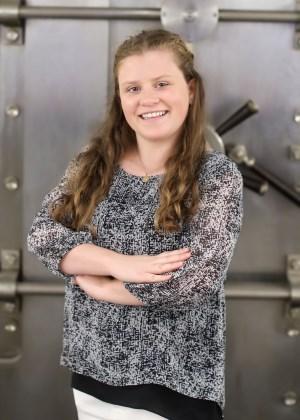
Spring 2020 Communication Newsletter
-
COMM Virtual Graduation Celebration
 COVID-19 is inspiring us to get creative and learn to use new tools to build community.
COVID-19 is inspiring us to get creative and learn to use new tools to build community.Before the closures, we had been planning our first ever COMM Graduate Celebration for the evening before graduation. Since we couldn't meet face to face, we decided to hold the event via Flipgrid.
This app has allowed graduates to post a short video message sharing their experiences in the department, give shout outs to people who helped them on their way and share goals for the future. Flipgrid is fun to use and allows users to pause and flip their camera while recording, add uploaded photos and videos, trim unlimited clips, and include a whiteboard, video styles, text, emoji, inking and more to add flair to their stories.
You can check out our Flipgrid Farewell page at https://flipgrid.com/e64926bd This grid will remain open for submissions from graduates through June. Graduates can contact Dr. Jim Burton a JABURTON@salisbury.edu for instructions and a link to create a post. It’s good to remember that there are still things worth celebrating!
-
Making Masks for Maryland
 Communication alumna Alyson Frazier (2019) is helping keep Marylanders fashionably safe during the COVID-19 outbreak.
Communication alumna Alyson Frazier (2019) is helping keep Marylanders fashionably safe during the COVID-19 outbreak.Frazier is the marketing coordinator for Route One Apparel, an online store that specializes in making trendy, affordable, state-pride apparel and accessories for those who want to make wearing clothing “fun while making a statement.”
Route One recently added a number of Maryland-themed face masks to its website to help protect Marylanders who have to venture outside their homes during the pandemic.
The company’s goal is to help those departments that are struggling to find masks, as well as bring a little joy to people during this difficult time with light-hearted designs.
Route One is also working to protect front-line workers. When you buy one mask, the company will donate another to an essential worker, up to 10,000 masks.
Frazier is in charge of all social media platforms and oversees content creation, contests and giveaways and customer communication. She assists with coordinating and designing email campaigns, as well as text message marketing campaigns.
“I am so glad that we are able to provide something for the community that is both useful and upbringing,” Frazier said. “We are all truly grateful that we were able to work with our suppliers to get these masks made for those who desperately need them.
“There is no doubt this is a difficult time for everyone, so I hope that spreading Maryland pride can make us all feel a little bit more connected, even if we can't be together. It is very fulfilling to have so many happy customers messaging us on social media to thank us for what we’re doing.” To find out more, visit Route One’s website at www.routeoneapparel.com/maskdonation. You can also fill out an application for a mask donation at www.routeoneapparel.com/pages/maryland-face-mask-donation-form.
Alumni Messages
-
Brooke Reese, Class of 2017

Brooke Reese, Class of 2017
Multimedia Journalist for WKRN News-2 in Nashville, TNBeing in television, the show must go on. But I certainly never thought it would be a career I could do from home.
I’ve moved to a remote workstation in my apartment, where I can edit, write and shoot FaceTime interviews at home. Every so often, I do go outside for in-person interviews for better visual content.
In those cases, I’m able to put a lavaliere microphone on my interviewees and shoot them from further away. I’ve also seen fellow reporters at my station using six-foot poles or mic stands to set up a stick microphone for interviews.
Our morning meetings have been switched to a conference call format, so I am primarily on my own other than communication with coworkers through text/email.
Let me first give my sincerest condolences for this semester that has been cut short. I can’t imagine going through my final semester from home instead of with friends and peers.
In addition, I stress that digital content is more important now than ever before. Everyone is consuming their content through the internet, so learning how to promote/create content through social media and digital platforms is crucial coming into the industry.
Also, learn how to adapt on the fly. This has been something no one has ever experienced, but let your managers know you’re able to work with whatever cards you’re dealt.
And be good at your craft, whatever that may be. Take your strengths and let them shine. Work hard at what you know your weaknesses are. Working hard to perfect those challenging areas will set you apart.
Finally, take risks and accept anything that comes your way. New adventures are what will help you grow, and being uncomfortable is the key to that growth. Good luck!
-
Stacey Foxwell, Class of 1987
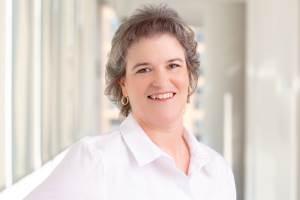
Stacey Foxwell, Class of 1987
Vice President of Operations for National Public Radio (NPR)As on-site essential employees, my staff is rotating shifts being in the building, either in Washington, D.C., or Culver City, CA (NPR West).
In addition to keeping our facilities extra clean, we’re helping to keep the approximately 10% of our staff, who are still needed to get our newsmagazines and newscasts on the air every day, safe and well fed.
While it has been a challenge, we’ve found workarounds through the use of technology, such as Slack, GoToMeeting and Zoom. In fact, some members of our staff are even becoming more tech savvy during this time because they’ve been forced to adapt.
The first week I wasn’t in the office, I tried doing all my meetings by phone, but I felt so disconnected that I now do a mix of phone and video meetings. My staff seems to like that, as well.
Nobody cares what their house or their hair looks like. Everyone is just happy to be healthy and staying productive.
I’m sure it’s a scary time to be graduating from college, and my heart goes out to those of you who are being affected by commencement and other event cancelations. Senior year is pretty special, and nobody wants a pandemic taking that away from them.
The fall after I graduated, the stock market took a big crash (Black Monday), and I remember being a little worried about my long-term employment opportunities. I say a little worried because I also remember feeling pretty invincible.
I don’t know that I feel invincible anymore (that was probably some youthful arrogance on my part), but I do feel resilient, and with everything I’ve gone through on a personal and professional level, I truly have come out the other side a stronger person and a better manager. I’ve also grown in my faith and kept a positive attitude during some of the toughest times.
I’m not saying it’s easy, but I promise you that one day you’ll be asked to write about a difficult time in your life, and you’ll look back on this and say: “It wasn’t so bad, I got through it, and maybe I even learned a thing or two.” I wish that for each of you.
-
Mitchell Northam, Class of 2015
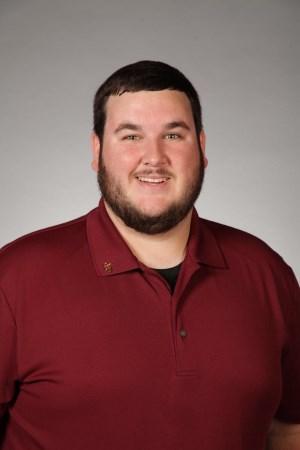
Mitchell Northam, Class of 2015
Freelance sports reporterI’ve been a full-time freelancer since I moved to Durham, NC, in October 2018, doing regular work for the Orlando Sentinel, SB Nation, NCAA.com and elsewhere. In sports writing, the sort-of niche I found for myself was covering professional soccer and college basketball, both men’s and women’s.
March and April are typically very busy months for me, with soccer starting up and basketball coming to an end. Earlier in March, I had already traveled to Atlanta and Nashville for assignments and had been covering the ACC tournament in Greensboro. I also was set to travel to Birmingham and New Orleans.
On the morning of March 12, I looked at my planner and had some sort of work every day through April 10. That afternoon, the NCAA tournament was canceled, and the three pro soccer leagues – MLS, the USL and the NWSL – suspended their seasons.
Shortly after, nearly all of the publications I was set to write and report for informed me that they didn’t have any work for me or that they were suspending freelance work all together. And so, I haven’t really worked for the past month, and that’s been very difficult.
My advice is to always have a back-up plan and always have another set of skills to fall back on. Unfortunately, the journalism industry in 2020 is a fickle one, and I knew that – even without the coronavirus – any of my regular gigs could pull the plug on me at any time, simply because they couldn’t afford me or for some other financial reason.
After a few days of not working, I dug into my backup plans: I submitted a book proposal, I started a newsletter, and I applied for a few journalism jobs that weren’t in sports, relying on my experience as a local news reporter for the Atlanta Journal-Constitution for two years. No one really needs sports content at this time, but there will always be a need for local watchdog news reporting, perhaps now more than ever.
It’s also okay to just take a mental break – from school, from work, from stress. This career field – and the current climate of our country – can be exhausting at times.
While I’ve been social distancing, I’ve also been reading, taking walks, playing video games and cooking. It’s good to unplug every now and then, and although this has been forced on us, I’ve somewhat appreciated it.
-
Eric Hammond, Class of 2000

Eric Hammond, Class of 2000
Senior Account Executive at Maroon Public RelationsBeyond missing the camaraderie with my colleagues, I definitely feel like teleworking has cut into efficiency some.
Before, I could immediately walk over to a coworker’s desk to discuss edits on a press release or walk into their office to ask a question. Now, it often requires scheduling a video meeting or exchanging long email chains.
The convenience of project management and communication tools help, but the back-and-forth slows things down a bit. A quick, face-to-face conversation is often the quickest way to clear communication.
I miss the energy of in-person client meetings and the feeling that comes with that full social interaction.
My advice to you is to be willing and able to adapt ... quickly.
The communication industry is one that is, for the most part, staying steady during this time. Messaging still needs to be distributed. Entertainment is being consumed at a more voracious rate than before, even though concerts have gone virtual and movies aren't being released in theaters.
News and talk shows are continuing to be produced and broadcasted. News websites continue to crank out stories. It’s remarkable that the media has rapidly figured out ways to continue working and not give up and shut down.
Find ways to be valuable in several aspects, and you will be an attractive candidate for a variety of roles You will also have more job security if you are willing to adjust when needed.
True, many sections of our industry have had to go full-stop. Broadway has gone dark. Film sets are empty. Many event- and sport-based outlets have shuttered indefinitely due to lack of content and advertisements drying up.
Public relations, corporate communications, some sectors of marketing, online content production and distribution – these are fields that are working at maximum capacity and having to expand that maximum each day.
Look for openings that are becoming available due to growing demand in these fields. If you can’t find an opening in these or whatever your chosen field may be, continue to educate yourself in the gap time.
If you want a job in marketing, use this time to earn certifications in Google AdWords, HubSpot and many others. If you want to be a journalist, author or playwright, practice writing every day. If you want to be in production, research the current techniques and equipment.
Keep yourself busy developing comprehensive skills in your craft now. When the entire industry fires up again, you will be a hot prospect!
-
Sarah Wood, Class of 2016
Sarah Wood, Class of 2016
Video and Digital Media Advisor for U.S. Senator Marco RubioOur office has been teleworking for a little over one month, which has meant a lot of our meetings, projects and communication have moved almost entirely online. This has presented new challenges in navigating ways to retain our current work flow while physically away from the office.
For the first bit of the teleworking transition, the senator was still in session while they negotiated a deal to provide help to small businesses during this time of extreme uncertainty. Under normal operating hours, part of my job is to film the senator and edit videos for us to push out to stations and on our social media accounts. But because of the restrictions surrounding coronavirus, that was not feasible.
Throughout our office teleworking, part of my job has been helping provide tips to the senator as he films himself for both social content and for news interviews from his home. This entails offering advice on framing, lighting, audio techniques and overall ideas for different shots around his home to conduct interviews or record videos while we are all away from the Capitol complex.
I am also still able to create digital media content as we would in the office on different subject material via the news, floor speeches, interviews, etc.
My advice to current SU students and recent graduates would be to not get discouraged. Your campus community is here for you.
So much of my experience at Salisbury was experience I gained outside of the classroom. And while I know this is an unprecedented situation, I still encourage you all to find ways to continue your growth while abiding by social distancing requirements.
I have a little sister who recently graduated from SU and a little brother attending SU. I have seen the impact this pandemic has had on the college community and on recent graduates firsthand.
And while this is a horrible situation to be in, I know the spirit of Salisbury and its students is one of resiliency, strength and creativity.
-
Diamond Holton, Class of 2015
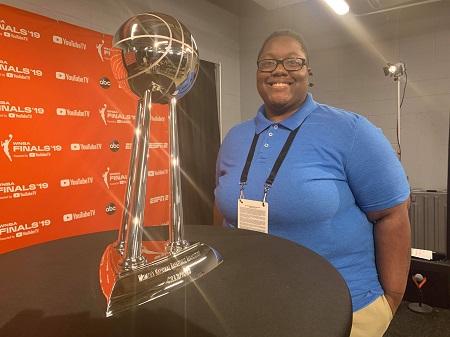
Diamond Holton, Class of 2015
Administrative Assistant for the American Federation of Government Employees and Editor and Beat Writer for SB Nation/Bullets ForeverAs an editor and writer, I’m actively engaged in reporting on the Washington Mystics full time and the Washington Wizards part time. That comes with attending games, developing a rapport with the players and also being the narrator behind stories that have no voice.
I’ve been at both jobs almost four years now this August 3.
Other than making my dining room an office, some of the big changes I have faced since the shutdown include the lack of production with Bullets Forever [an online Washington Wizards community]. Normally around this time, the NBA regular season would be coming to an end, and the WNBA regular season would just be beginning.
No sports due to social distancing takes away the depth of written content and depletes the number of stories just falling in your lap. This has forced me to actually use my brain more in being creative and making sure that, despite the odds, we’re not losing our faithful audience.
Another big change since I’ve been teleworking is the increase in video chatting with coworkers. As an administrative assistant, Zoom has become the main source of contact, with emails being a close second, followed by text messaging and phone calls.
During this challenging time, you should eliminate “bored” from your vocabulary and be more creative with the extra time and space you have. Although being home is not ideal, it allows you to get things done, whether it’s work related or a hobby you’ve put off because you’re normally too busy.
The sky is the limit so expand the way or ways you were doing things. Make good use of your time and try your hardest not to dwell so hard in your current circumstances.
Finally, during this time, one of the best things you can do is honestly hitting the reset button and taking care of YOU. That could be taking time off and doing absolutely nothing or even grabbing some crayons and coloring again.
In the end, nothing you do can truly be your best if you aren’t your best.
-
Rachel Taylor, Class of 2016
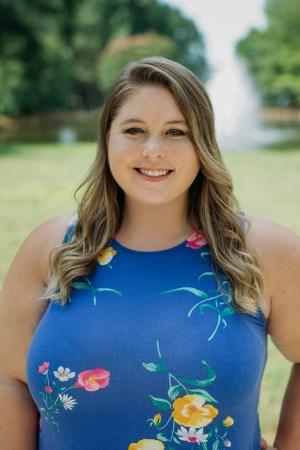
Rachel Taylor, Class of 2016
Branded Content Creator with 6AM City, NCI started this job right as stay-at-home orders were issued in North Carolina, so, my training and getting started with this job have all been done from home and over video calls.
It has been hard not to be in an office with coworkers, but I don’t feel too disconnected because we are able to communicate through the day with Slack and video calls with Google Hangouts.
My advice to you during this challenging time is to be adaptable and flexible. Take a chance on a job that might be out of your comfort zone or in a different area of your field.
As a communication major, I always thought I would be a journalist working in newspapers and magazines. With the changing media landscape, I decided to try something else that would still allow me to write but in a job with more security.
You might not find your dream job right away, but be patient and you’ll be able to find something you love to do.
-
Rebecca Hudson, Class of 2006
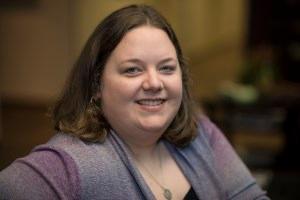
Rebecca Hudson, Class of 2006
Community Relations Lead for NASA’s Wallops Flight FacilityThe COVID-19 shutdowns have definitely changed my day-to-day operations.
Prior to transitioning to a telework status, I was routinely out in the community doing things, such as community events, meeting with civic leaders, working alongside legislators and exploring ways to share NASA’s mission throughout the community.
Now, I stay at home. My officemate is my dog, Bailey.
I’m still exploring ways to share NASA’s mission, but I am now doing so virtually. This has truly allowed my creative juices to flow and helped me realize ways we can do our job more efficiently.
My advice would be to stay focused on the positive. There are a lot of scary things happening, but I think it’s important to focus on the good that remains.
This a great time to try a new hobby, learn a new skill, enjoy time with family or just focus on self-care.
For those in essential work arenas, this is critical. Take time to breathe, and remind yourself that we will get through this.
It might not be easy to see an end to this now, but it will come. Focus on the good things!
-
Mary Holden, Class of 2018
Mary Holden, Class of 2018
Program Coordinator for Junior Achievement of the Eastern ShoreSocial distancing/teleworking has impacted my work since now we are unable to have our in-classroom programs. We have been working to share all of our materials to schools and teachers to help them in any fashion during this time.
As a staff, we are holding Zoom meetings to ensure that we all know who is doing what and also allow us to stay connected.
During these difficult times, your feelings do matter, and you are allowed to be sad that you are missing some of your college career. Just remember all the amazing friends you have made and talk to them.
No one has been through this before, so give yourself grace and understand that no one knows what they are doing.
I would advise you to do professional development webinars – these are skills you can add to your resume.
A Message From Our Faculty
-
New Challenges: Reflections from the Communication Department
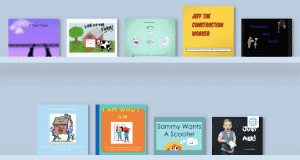 By Jennifer Cox
By Jennifer CoxThe Communication Department has always been a uniquely multifaceted group. Our professors teach a wide range of subjects, including media production, organizational/human communication, public relations, journalism and media studies.
The shift to teaching online has exacerbated those differences in some ways (How do you teach studio production without a studio?). But it also has brought us together to discuss the best ways to give our students the education they need and deserve.
We are all adopting different strategies to adapt to the challenges in our various fields.
I had to reimagine course assignments for my journalism students. With coronavirus emerging as the biggest news story in recent history, my students are tackling it head-on with articles that investigate the challenges local citizens, businesses and officials are facing during the quarantine.
But coronavirus coverage is not distracting my Public Affairs Reporting students from their semester-long goals. The class continued their work on The Race Project – a series of articles aimed at tackling race issues at Salisbury University and in the community, many of which are published in The Flyer.
Because it is not safe for students to conduct their interviews in-person, the class attended Zoom press conferences with insightful sources, including SU President Charles Wight, English professor April Logan, Chief of Staff Eli Modlin and two SU students who have been vocal about race issues on-campus, Jeremiah Copeland and Shaniya Yates. Students conducted other interviews with sources via phone or private Zoom meetings.
The project was too important to abandon. We have come so far on this important issue, and the students were dedicated to moving forward and producing quality work that addresses race relationships here at SU.
Doug Barrett teaches audio production, which often involves specialized equipment and professional recording spaces. He has had to adapt his courses so students can use their personal laptops and SU community-owned software to create unique audio collages (or musique concrète compositions) that use the domestic sounds of quarantine life and investigative journalism podcasts that reflect on ways the coronavirus has impacted life on the Eastern Shore.
On the community and professional communication track, Amanda Welch-Hamill and Department Chair Lori DeWitt came up with creative ways to incorporate online tools into their classes.
Welch-Hamill’s Group Communication students are using Zoom to record and share their lectures, projects and meetings. She has found the MyClasses discussion boards to be most helpful and said students are responding positively to the class conversations. She even created a board just for socializing that her students have enjoyed.
DeWitt borrowed an online exercise from Megan Pope, of Texas A&M-San Antonio, for an online group project in which students use the website app bookcreator.com to write a children’s book on a topic related to course content. DeWitt wrote one to demonstrate and is awaiting submissions from her students.
“I'm excited to see what they come up with,” she said. “There is something energizing about doing something new.”
Vinita Agarwal already incorporates online tools into many of her public relations classes and has a progressive perspective on their impact on higher education. She believes more of our University responsibilities will be technology-mediated.
“I personally think it opens up opportunities to do more experientially without being spatially and temporally bound,” she said. It gives us a chance for “intellectual and cultural engagement, for collaboration in the classroom, in groups and with colleagues.”
David Burns’ biggest challenge has been coordinating internships. Communication students work in several locations, such as the Maryland State House, lobbying firms, nonprofit organizations, museums, media outlets, event planning facilities, hospitals and many others.
Students who were interning locally were denied on-campus housing appeals. Many internship sites closed down. And several parents brought their students back home to monitor their safety.
Students are required to document a minimum of 180 work hours to earn credit for the internship experience. At the time of the crisis, most students only had about half of their hours completed.
Burns conceptualized plans to help students get the hours they needed. If the internship site permitted, students could telework and continue contributing to the organizations’ productivity. If teleworking was not an option, students could choose from several online activities, including creating a LinkedIn profile and posting to it daily, completing their final web portfolios and reviewing career-oriented learning modules and TED talks.
“Needless to say, moving an on-site internship online was an ‘out of the box’ exercise,” Burns said. “I must say, the on-site supervisors were phenomenal in helping the students and keeping them safe.”
The Communication Department will continue to work together toward creative problem-solving and enhancing their students’ education, no matter what challenges await us going forward.
